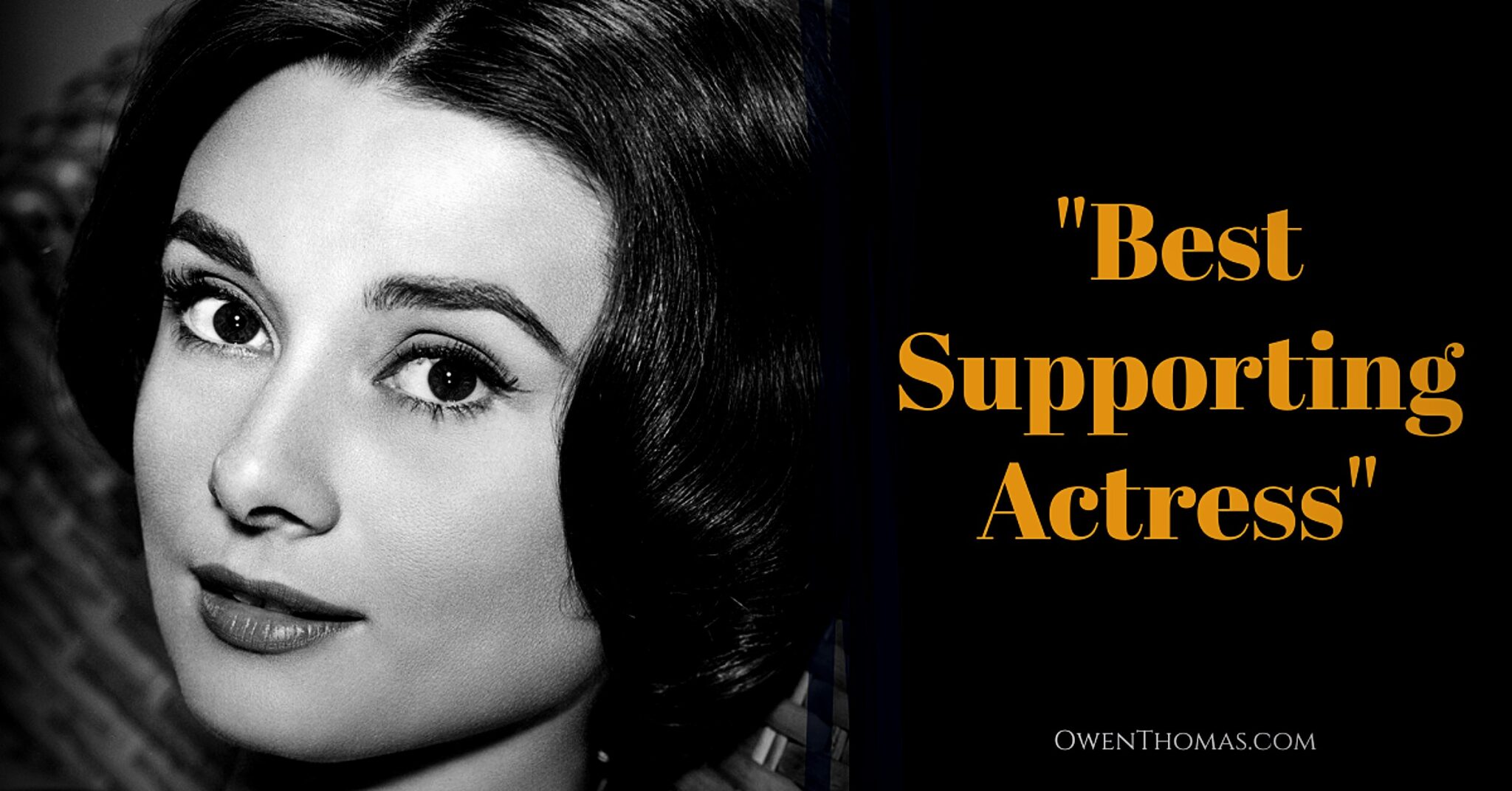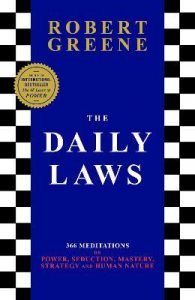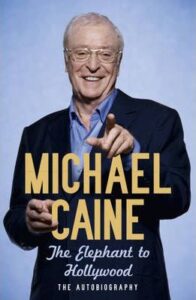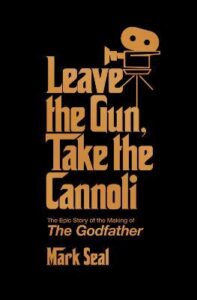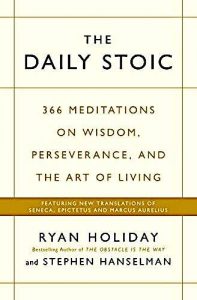To know what you know and what you do not know, that is true knowledge. – Confucius
At Fifty-Eight, Michael Caine looked in the mirror and realised that his career was over. He was no longer a Hollywood Star. He would no longer be the leading man. He would not be the box-office draw card the studios would use to market their films. He would no longer be allowed to change his lines and rewrite the scripts, and the only girl he would get to kiss in the movies would be his daughter. That mirrored face that looked back at him was now that of a leading Hollywood actor, a character actor. He was satisfied with that – he had had a successful career and had done well financially, and if this was the end, so be it.
Caine could look back at such movies as “Alfie”, “Zulu”, “The Man Who Would Be King”, an Oscar for “Hannah & Her Sisters”, “Educating Rita”, and, of course, – “The Eagle has Landed” and “The Italian Job”. The latter being the movie with arguably the most quoted movie line – “You’re only supposed to blow the bloody doors off”.
He would now enter a period that he called the black hole.
“If you’re a movie star, you get the girl, you lose the girl, and then you get her back. But if you’re a character like me, you lose the girl, then you get another one, then you get another one, then you lose them all, then you lose your life.” – Michael Caine
A smart bubbly waitress smiled patiently back at us; it had been the fourth time she had been back to take our order. I was with three other friends, and we hadn’t seen each other for some time, so the conversation had been enthusiastic, and the idea of ordering food had been furthest from our minds. Yet we were hungry, so food was quickly decided on, and we could get back to the subject at hand. It is election time in Australia, and the last two years of world history have exposed many of the weaknesses in the leadership of both our federal and state governments.
How can anyone read history and still trust politicians? – Thomas Sowell
We spoke freely about the loss of privacy and personal freedom and our concerns for the country’s future. It is a concern shared by many populations in western countries where we have witnessed significant government overreach and inept and compliant opposition parties, who have failed to do their job of scrutinising the government. A situation that is set to continue.
One of our most significant concerns was the considerable censorship we had witnessed by major overseas tech companies and the failure of legacy media to do the real job of journalism. Instead, we saw many lazy, uninformed, unquestioning commentary and clickbait stories. We feared the days of great journalism featured in films like Spotlight and All the Presidents Men were long past and that the truth may be much harder to come by.
The New York Times’ long-standing motto, “All the News That’s Fit to Print”, should be changed to reflect today’s reality: “Manufacturing News to Fit an Ideology. – Thomas Sowell
Yet all was not gloom and doom. We enthusiastically spoke about the rise of new media streaming services, long-form podcasts and a range of political groups the government’s response to the health crisis had activated. And that the parts of the population were being politically active and aware. Aware that citizens get the governments they deserve from their past actions. We are ultimately responsible if we have a poor government full of weak leaders and cronyism. WE LET IT HAPPEN. The health crisis may have activated people, but it has also stirred the pot where previous government actions that had gone unnoticed were now also front and centre. These organisations were morphing into something more – the health crisis response was not the only thing on the agenda.
We spoke about how we saw people courageously and passionately put their lives on hold, start support groups and, from almost nothing, begin protest groups that would lead to the massive rallies and protests throughout Australia, many of the biggest in Australian history. With tens of thousands of people mobilised in the streets of both the national capitals and regional cities.
There were things that we agreed with and others we did not. But the courage and the strength of these groups of people inspired us. One friend regretted why she hadn’t dared to go down that path and was only a participant. She had been a significant leader in many businesses earlier in life and certainly had the skills to create such organisations. So why hadn’t she done so?
I pointed out that perhaps that wasn’t her role this time. She was in her middle sixties and had some health concerns. One of the major players we had discussed had just turned forty; another was a woman in her early thirties. Both had grown up in a world where being tech-savvy was part of the school program; they were still energetic with some powers of youth but old enough to apply wisdom to their actions. Both their physical and emotional resources were more attuned to taking a leading role or, in movie terms, the lead actor or Hollywood star in the events unfolding. I pointed out to my friend that perhaps her role was different this time.
“Whether I shall turn out to be the hero of my own life or whether that station will be held by anybody else, these pages must show.” Charles Dickens – David Copperfield
Often in life, there is a role we would like to play, yet there can be a vast difference between what we would like to do and what we are capable of doing. We may be restricted by resources, energy, time, health, or talent. The vital thing to do is do what we can right now. That very action contributes to the drama of life we are currently involved in and allows us to develop stronger “muscles” to prepare us for perhaps roles where we have the opportunity to be centre stage. At that point, we may find that being centre stage has many other responsibilities that had been previously unrecognised by ourselves. And we may find that perhaps a supporting role is far more suited to our life’s desires.
Early in our working life, we often want to rush headlong into the “star” position. We want the easy success and the responsibility of being the holder of the brass ring. Yet we forget that we know very little, that our role perhaps is that of the supporting actor, or an apprentice if you will, that we are there to help the hero, the star, achieve the story’s goal. We are there to learn our craft and prepare ourselves for future success.
All successful actors will often tell the story of the early part of their acting career when they had the opportunity to work alongside a truly great actor. Not only did they learn new skills, but the experience brought out hitherto unknown qualities in themselves, and their performance was magnified. A great actor will cause others to rise to the occasion.
It is essential to understand where we are in the current comedy of life and play our part. Whether the leader, a star, a walk-on part or a supporting actor or actress. We may also be asked to play supporting roles driven by needs and the world’s circumstances, the people around us or those we love. Michael Caine has often quipped that “I got paid the same for a bad film as a good one, one film I made so I could buy a house for my mother.”
We may not like the role, but fate nonetheless asks us to play it.
On Sunday, February 29, 2004, five films were nominated for best picture at the 76th Academy Awards. Lost in Translation, Master and Commander – Far Side of the World, Mystic River, The Lord of The Rings: The Return of The King and Seabiscuit, with many awards that year going The Lord of The Rings way. It was a year of many great films and tough competition.
Laura Hillenbrand is probably a name that doesn’t spring to mind quickly and probably doesn’t mean a great deal to you. It didn’t to me either. Yet without her, there would be no nomination for Seabiscuit for best picture. There would be no inspiring film, a legend forgotten, and many a family night in front of a great movie not experienced. Laura Hillenbrand wrote the book Seabiscuit: An American Legend, upon which the film is based.
Writing a book is not easy – ask any author, particularly a nonfiction book where research and interviews are very much part of the process. But life had thrown an extra twist Laura’s way. First, at nineteen, she succumbed to than an unknown and still little-understood sickness – chronic fatigue syndrome. Then, to complicate matters further, she experienced significant vertigo, which made driving and even climbing stairs a big day out. Years later, when interviewed, she would say, “I was not taken seriously, and that was disastrous. If I’d gotten decent medical care to start with — or at least emotional support because I didn’t get that either — could I have gotten better? Would I not be sick 27 years later?”
“There is only one way to happiness, and that is to cease worrying about things which are beyond the power or our will.” Epictetus
In her own words, here is how Laura Hillenbrand wrote her book Seabiscuit and her other bestseller, Unbroken, and they went on to sell over thirteen million copies and two movies.
“To deal with the exhaustion, which renders me bed bound at times, I did everything I could to limit my energy expenditure to tasks related to my book. For the years in which I was writing, I did virtually nothing else. I put a refrigerator in my office, right next to my desk, so I could eat while I worked instead of walking downstairs. On some days, I’d lay on the floor, spread all my source materials around me and work there. Sometimes I’d lug my laptop to bed and write while lying down. There was no way for me to travel to distant libraries, so I used Interlibrary Loan services to arrange for books and newspapers to be sent to my local library from the Library of Congress and other libraries. I hired a former jockey to go to Kentucky’s Keeneland Racecourse, which has a comprehensive racing library, and photocopy like crazy for two days.
My other major obstacle was vertigo, which causes my surroundings to look and feel like they are spinning or pitching up and down. The symptoms never go away, but reading and writing greatly exacerbate them, as does looking down. My boyfriend jerry-rigged a device to hold source materials upright, so I could avoid looking down. I put my laptop on a stack of books, so it was at eye level. When the vertigo was very bad, I’d lie in bed and write on a pad with my eyes closed. It was punishing work. At the end of every day, I was quite nauseated from the vertigo and exhaustion, and in the final weeks of writing, I was so overworked that my hands shook, but somehow, I got the book done.”
In 1991, when Michael Caine stood in front of that mirror and had that life-changing epiphany, it had been just after he had made a phone call to his agent. He had complained about the recent script that the lead part was weak and didn’t do very much. His agent had laughed and replied, “I didn’t send you to read for the male lead; I wanted to read the part of the girl’s father – that’s the part that’s best for you”.
The year after Michael Caine’s mirror moment, Sherry Lansing was appointed chairmanship of the Paramount Pictures Motion Picture Group. Paramount experienced its most successful and longest run of success for the next twelve years since the 1930s. Lansing oversaw the production of Forrest Gump, Braveheart, and, at the time, the highest-grossing film of all time, Titanic. Six of the ten highest-grossing Paramount films were released during her tenure, including three Academy Awards for Best Picture. Yet, after twelve years, she realised that her time was up. All she would be doing would be repeating that last twelve years – there was no new movie mountain for her to conquer. But, unlike Caine, she didn’t need anyone to tell her it was time to move on – she came to that realisation herself.
Sherry Lansing moved on to start her own foundation and now sits on various other charity boards and research organisations. She now uses her skills in a supportive role to help others to be the heroes in their own lives.
There are more roles in life for supporting actors than major players. Martin Luther King Jr didn’t walk across the Edmund Pettus Bridge by himself on those three Civil Rights marches from Selma to Montgomery. Many willing and able people stood alongside him. No hero walks alone, no general wins a battle alone, and no child is raised without a village.
“As an actor, fifty per cent of your work can be done for you when you’re working with people who not only believe in you but also who are exceptional, and it’s your job to try and find these people.” Jake Gyllenhaal
In reality, most of us will be bit players in many people’s lives and, with good fortune, the opportunity to be supporting actors in some.
And of course, we can choose how well we will play that part.
Yet not all supporting actors or actresses play uplifting roles.
Around 3 pm on January 22, 2008, in the Soho neighbourhood of Manhattan, Diana Wolozin found Heath Ledger unconscious and, by 3:36 pm, he was pronounced dead. Later that year, he was awarded the Academy Award for Best Supporting Actor for his role as The Joker in The Dark Knight. Caine, who starred alongside Ledger as The Batman’s butler, Alfred, would recall that “he was the most frightening villain he had ever played opposite.”
So, not all supporting actors in our lives are supportive of a happy experience. And if we, in turn, discover that we could be awarded an Oscar for our “joker” type role in someone’s life, let us be thankful that life unlike the movies lasts longer than a few hours on screen. That we, in turn, will have the opportunity to ask for forgiveness for the damaging character we may have played. Yet, in contemplating our future actions, it pays to remember that while forgiveness is possible, the consequences of our actions can be permanent, and forgiveness is not guaranteed.
So, there are some roles in our lives that it may be best to turn down.
Alice Marchak is another name you are probably not familiar with, yet her support efforts would help resurrect an acting career that had been in the doldrums for over ten years and eight movie bombs. She was the personal assistant and intimate friend to one of the big fallen stars of her day; now, a washed-up temperamental has been. A star so disliked by the moneymen that no Hollywood studio would consider them for any role – in their terms, a box-office disaster. A dyslectic star, the biggest name in the business, refused to act even if there had been a role. And as a bonus – depressed, overweight, hooked on Valium, unhappy, and headed for their third divorce.
Believing that acting was the only thing that would save her friend and boss, Marchak would scour the Hollywood Reporter for potential roles—once being thrown out of the stars’ house for three days for having it on the premises.
Yet there was an author and its film’s young director who insisted they were the actor for the role. While struggling to get the studio on side, they were also fighting the actor’s reluctance, who, fortunately, was being won over quietly in the background. After returning to the house, Marchak placed a letter from the author on his bedside table and would later organise a call with the author. And eventually, read the book out loud to her friend and then bait the stars’ ego to finally win them over.
Marlon Brando would eventually describe the role to the young thirty-year-old director, Frances Ford Coppola, as delicious. And he would go on to be nominated and awarded the Oscar for Best Actor as Don Vito Corleone in The Godfather, the film that changed movie history. Critics rank it number two behind Orson Wells’ Citizen Kane. Out of his malaise, Brando would go on to star in Apocalypse Now and Superman 1978, Paying a record $3.7 million ($17 million in inflation-adjusted dollars) and 11.75% of the gross profits for 13 days’ work. So, what would the world, and Brando’s bank balance, be like without Alice Marchak? I hope he gave her a bonus.
“Most of my childhood memories of my father are of being ignored. I was his namesake, but nothing I did ever pleased or even interested him. He enjoyed telling me I couldn’t do anything right.” – Marlon Brando
There is one significant role that, for whatever reason, we choose the best-supporting role over the main lead. And that is the hero in our own lives. Unfortunately, we more often than not want to hand that role over to authority figures outside ourselves. For some strange reason, we would instead place other people, institutions, and cultures in the deciding seat of our lives. We let them decide what is important, what actions we should take, and how to live and progress our lives. We will do whatever possible it seems not to be responsible for what happens to us. Yet it is here if we wish for a life of meaning, where we must step into the driver’s seat and be the producer and star of our own lives. It can be the most freighting role to accept, yet it is our birthright, and the gods of fate demand it from us. Yet many of us choose to be cold, timid soles knowing neither victory nor defeat, and place ourselves outside the ring of life on its sidelines, allowing others to decide the footprints of our life.
“It is hard to imagine a more stupid or more dangerous way of making decisions than by putting those decisions in the hands of people who pay no price for being wrong.” – Thomas Sowell
Michael Caine has acted in more than 160 movies. He was nominated many times for Best Actor, but only won two Oscars for Supporting Roles. One in Woody Allen’s “Hannah and Her Sisters” and the other much later in his career for “The Cider House Rules.” Although he considers his leading role in the movie adaptation of “The Quite American” (2002) as his best performance and potentially an Oscar-winning one, it didn’t turn out as he hoped. The Oscar for Best Actor disappeared almost instantly, just like the Twin Towers fell on that tragic day in New York.
No one would vote for a role and a film that year that expressed anti-American ideas and questioned American foreign policy.
“The Quiet American” was the second Graham Greene film adaptation in which Caine performed. The first film, “The Honorary Consul” was panned by critics, except for Michael Caine’s performance, which was praised as the only good thing about it. Caine would always give his best.
That is all any of us can do. That is all we can control. The gods will have their way, and we can give our best.
There will be many more opportunities to be the best supporting actor and still more bit-parts and, again, even more walk-ons and extras roles than perhaps the major hero on the stage of life. It will always pay to have our weapons of life prepared and maintained for whatever battle life provides. But regardless of what the gods of fate send our way, let us play our parts well where the critics can always count on a good performance from ourselves.
Let’s end with Michael Caine’s famous line from his Best Supporting Actor acceptance speech at the 1999 Academy Awards for the movie “The Cider House Rules.”
“Good night, you princes of Maine, you kings of New England.”
But then –
“Hang on a minute, lads. I’ve got a great idea….”
Till Next Time – Something to Think About & Share.
Resources & Further Reading’
The Elephant to Hollywood – Michael Caine.
Leave the Gun, Take the Cannoli: The Epic Story of the Making of The Godfather – Mark Seal.
The New York Times – Laura Hillenbrand.
Me and Marlon – Alice Marchak.
Seabiscuit : The True Story of Three Men and a Racehorse – Laura Hillenbrand.
Unbroken – Laura Hillenbrand.
